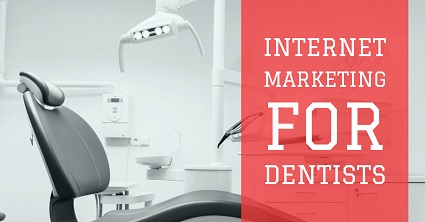Your cart is currently empty!

Internet Marketing for Dentists
We’re talking about internet marketing for dentists, but we might as well just say “marketing for dentists” because now, people looking for a dentist look online.
- 97% of consumers looking for a local business — like a dentist — search online first.
- 93% of consumers go to a search engine like Google when they need a local healthcare professional.
Sure, people still ask their friends, either in person or in social media, but they don’t go to a phone book or wait for a billboard to catch their eye. They say, “Siri, is there a dentist near me?”
And when people ask their friends to recommend a dentist, they’ll visit your website before they call or visit your office.
Your website is the first thing prospective patients see — not your waiting room. Share on XMake sure your website looks good.
Since your website is the first introduction patients have to your practice, make sure it’s professional looking, current, and up to date.
You must also make sure that your website answers the questions new patients have:
- Does this dentist take my insurance?
- What services does this dentist provide?
- Does this dentist see adults/ teens/ children?
In fact, the more questions your website answers for visitors, the better.
If your practice offers specialized services like Invisalign or popular tooth whitening systems, make sure you use the brand names at your website. People search for “Invisalign near me.” If your website offers useful information for people searching for a particular kind of help, they will appreciate the help you offer… before they even talk with you.
Start with SEO in mind.
Make sure your web content is written to communicate well with search engines, as well as with human visitors. This will make it more likely that people looking for a dentist in your town will find you. Dentists can certainly learn from information on SEO for doctors in general, but there are special things about internet marketing for dentists that might be relevant for your practice:
- Dentists may make more use of brand names. Compared with a general practitioner, you might be more likely to offer special branded products and services like Invisalign, Botox, or Opalescence. Take advantage of this fact and make sure that you have strong pages with original, useful content for any brand you know patients care about.
- “Dentist near me,” in most communities, brings up about 25% as many listings on Google as “doctor near me.” While someone who needs a gastroenterologist will probably start with “doctor near me,” someone looking for a dentist probably won’t. You might have the bad luck to be in a town with lots of tech-savvy dentists, but your chances of having little competition are actually pretty good. Work on those more general terms with a good SEO strategy.
Avoid duplicate content.
Having identical language on your website and on other websites — or even identical language in multiple places on your website — is the kiss of death for SEO. Many medical website services create websites with duplicate content without telling you.
Duplicate content can also be a problem if you cut and paste words from a manufacturer’s website. We said you should have full information on Invisalign, but cutting and pasting information from another website will harm your online marketing. Think about it: why should Google show your information about Invisalign if it’s identical to another, older page on the web? They won’t.
Make sure that you have fresh, original content on your website. Adding fresh content regularly is the most effective way to increase your rankings. That means your website is more likely to show up when people search for a new dentist in your neighborhood.
Show your location.

People search for a new dentist with terms like “find a dentist,” “need a dentist,” and “local dentist,” but the screenshot above from Google Trends shows the top search term: “dentist near me.”
When Google sees terms like “near me,” they’ll make sure to show searchers the dentists who are actually close by geographically.
So how does Google know where you are? Make sure you include your address, formatted just the way you’d write it on an envelope. Include your name, address, and phone number (NAP) on your homepage and your Contact Us page at the very least. It’s not bad to include it in your header or footer, too.
Then get as many local links and citations as possible, all using that same address information.
Keep it up.
Having a great website is important, but you can’t just set it and forget it. Regular blogging, social media engagement with your patients, and ongoing web management are essential for success.
by
Tags:


Leave a Reply